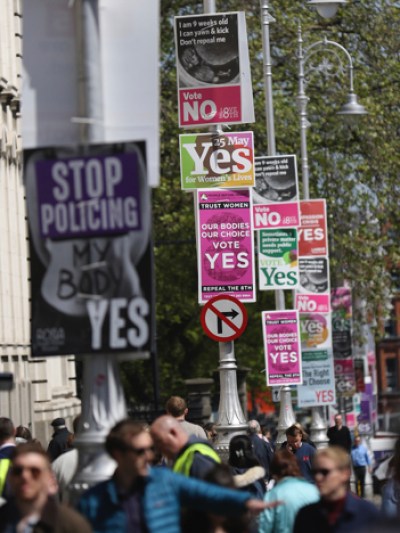
A number of the British voters who, in the 2016 national referendum, supported “Brexit”—the term used to describe Britain leaving the European Union—now have “buyer’s remorse.”
Although Brexit succeeded by about 52 to 48 percent, current polls show that the vote, if held today, would be strongly in favor of remaining in the EU by as much as a 59 to 41 percentage majority.
Those who once believed the “Leave” argument—that the UK could fund their National Health Service by no longer sending the EU 350 million pounds a week—now know that the number was made up.
Further discouragement has come from the realization that Britain owes Europe a lot of money for budgetary promises not kept, for agreements signed and not honored, and that there will be new costs, such as replicating from scratch the EU agencies that now serve as pharmaceutical and nuclear regulators.
Be assured that the “Remain” campaign also employed misleading information to scare voters. Sadly—in elections and referenda throughout the world’s democracies—winning is everything, and truth is expendable.
Good information is critical to good decision-making, but in most referenda, the dominant strategy is to create doubt and discredit your opponents. Creating doubt, for example, was employed in Ireland by some opponents of abortion. On their billboards, a wide-eyed baby face proclaimed: “I had no idea…They want to legalize abortion up to six months.”
That was a misrepresentation, but it didn’t work because the referendum had been proceeded by a citizens’ assembly. 99 Irish citizens were randomly selected from the populace by a process called “sortition,” rather than by election. Selection by sortition ensured that the group was truly representative of the Irish population.
Those selected were asked to spend one weekend per month studying and developing a new Irish policy on abortion, to ultimately be decided by a referendum.
It took the citizens five weekend sessions in a hotel meeting room to
- study their briefing books
- hear speakers coming from varied perspectives
- hear emotional testimony from women affected by the abortion ban
- consult with experts
- talk in their own smaller groups and in the large group, and
- formulate a set of recommendations.
The process was broadcast for public viewing, so that even before the referendum, the level of understanding among Irish citizens was dramatically higher than was ever achieved by Brits during the debate on Brexit. Anyone who watched the Irish assembly proceedings could appreciate the quality of information and, more importantly, the quality of conversation among the representatives.
In fact, these citizens spent more time studying and discussing the issue than any elected legislators ever had, making them more expert than almost anyone else.
What happens in such assemblies, without the rancor of politics, is that citizen representatives with differing viewpoints become friends, and that spirit changes the nature of the deliberation.
The representatives are not trying to win anything, especially not an election. They’re just trying to find the truth, as best they can, and make good decisions.
The British Brexit voters in 2016 had no such opportunity. They didn’t get to read non-partisan information prepared for a citizen’s assembly about the pros and cons of the United Kingdom leaving the European Union. They didn’t get to see a discussion on the issues by representative citizens—people just like themselves. Instead, there was a noisy, partisan battle.
But negative attack ads do not make for good information. And posturing in Parliament does not make for meaningful deliberation. Critical decisions in a nation’s life need thoughtful consideration by a truly representative process. Not politics as usual.

The meaningful discussion in the Irish citizen’s assembly was likely the reason the referendum was decided by a wide margin: two-thirds to one-third vote…the confident decision of an informed public.
How different might the process have been for the U.K. if a citizen’s assembly about Brexit had framed the discussion for the referendum, instead of professional politicians?
Power to the people.
Subscribe to receive future posts.

